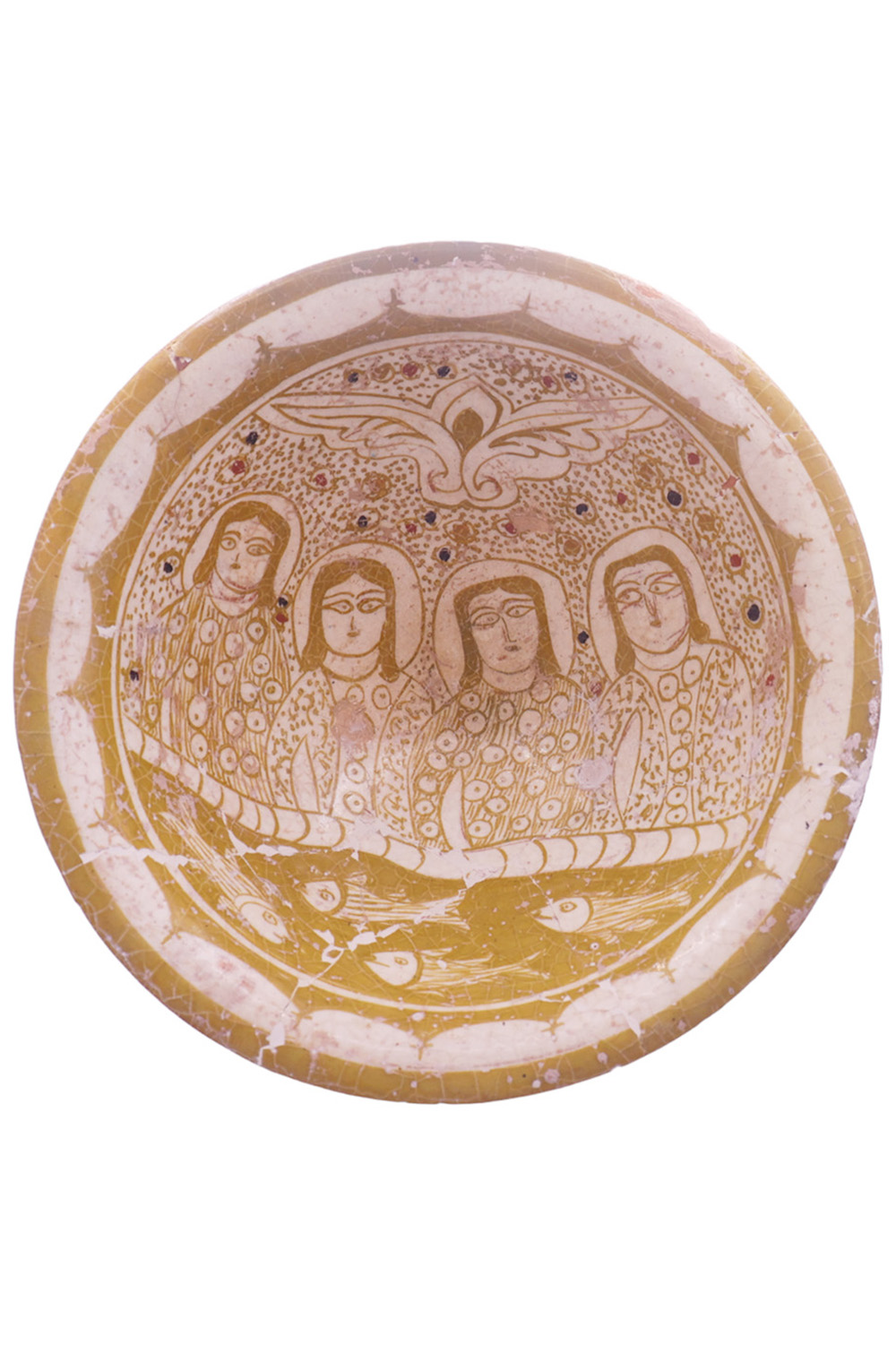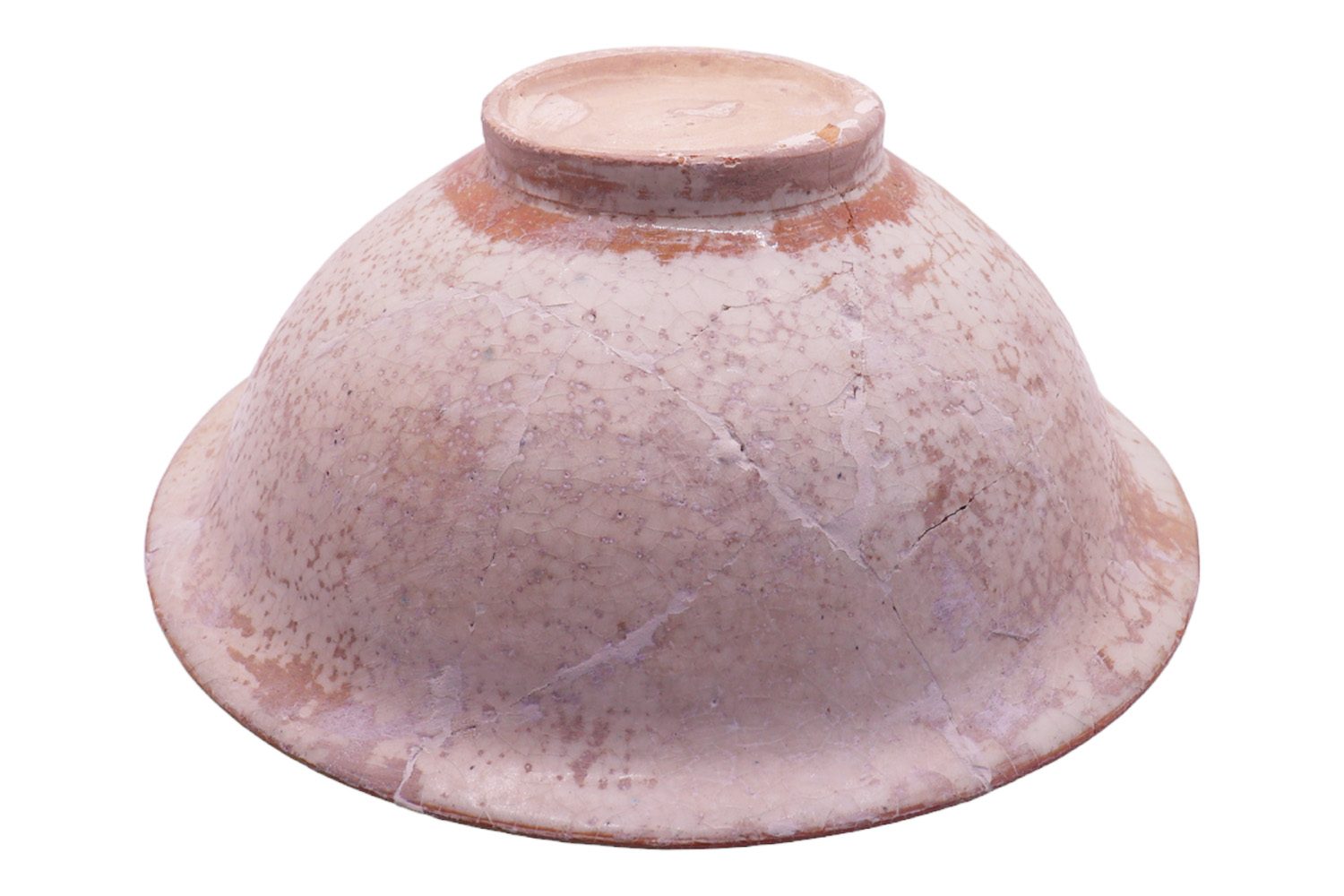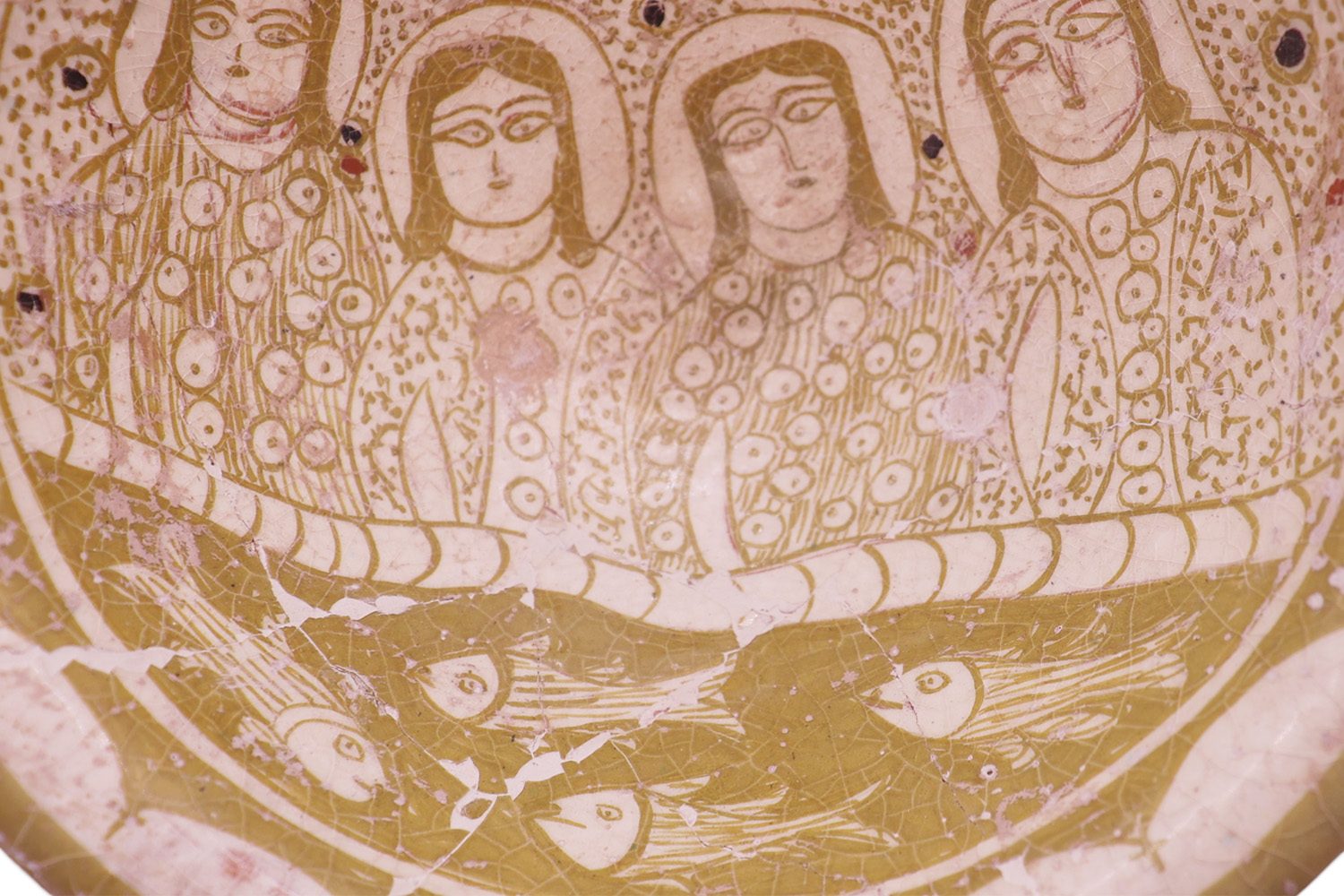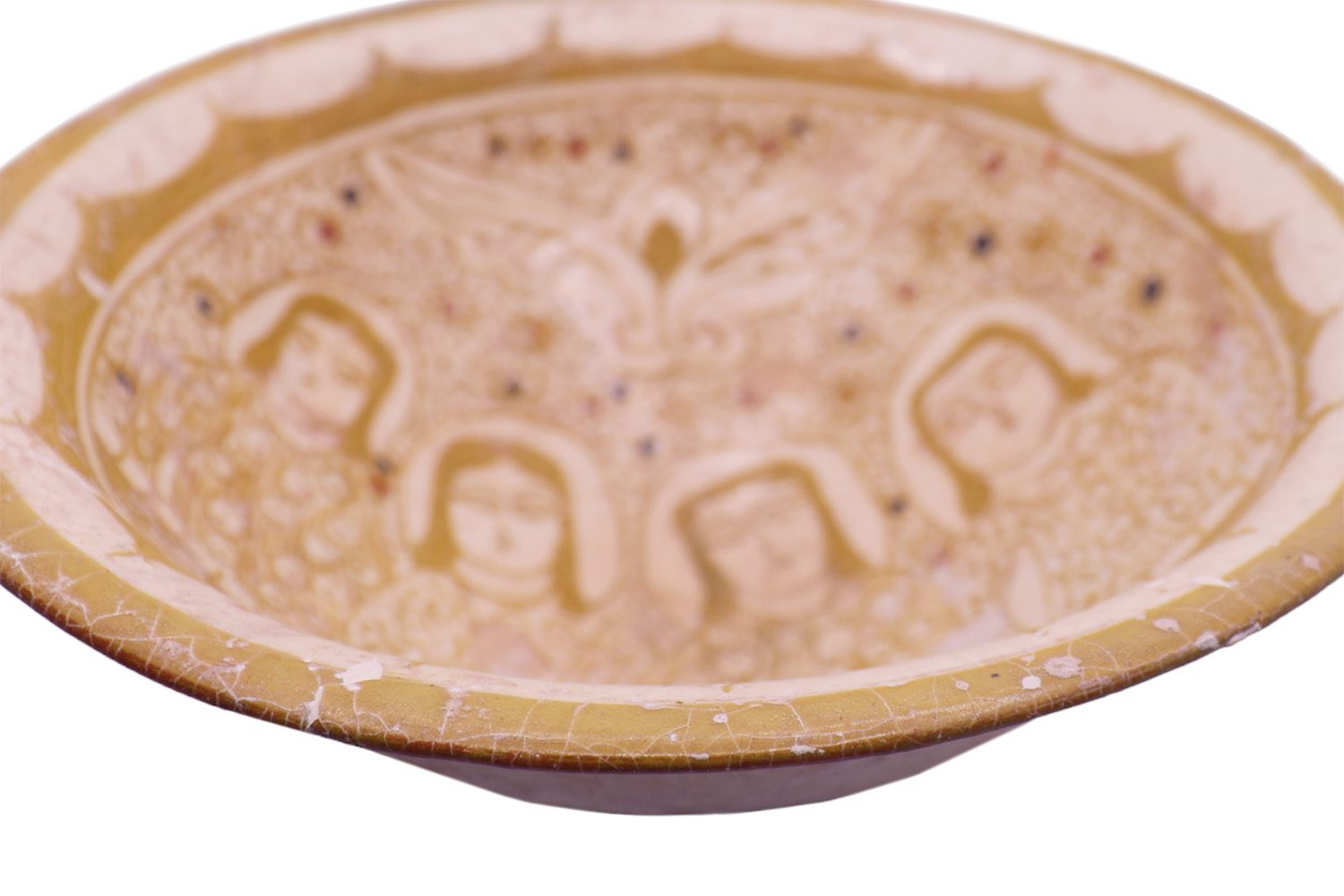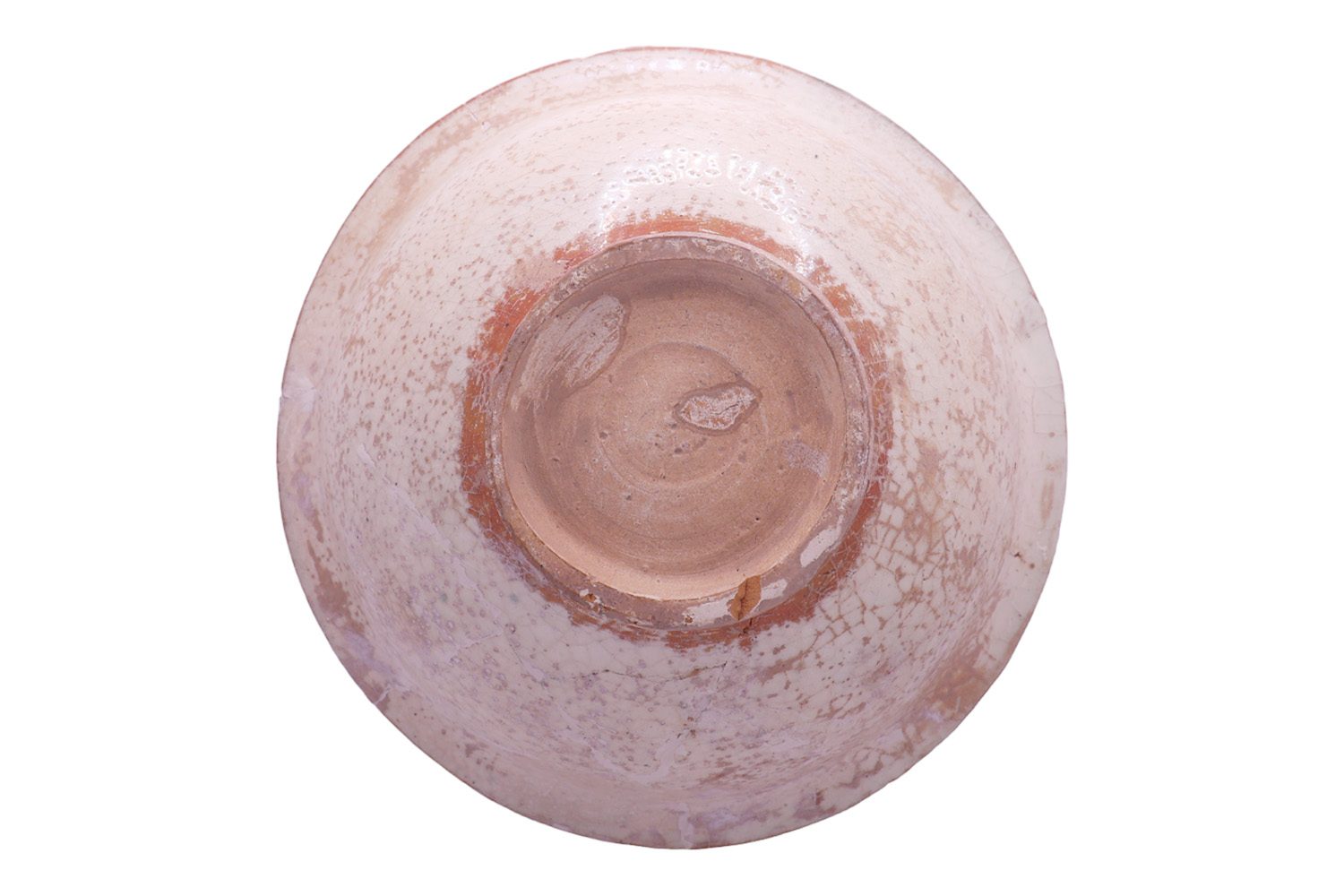10,000.00 €
Antique 12th century Kashan ceramic, Iran
Beginning in the twelfth century, ceramics were produced in Iran with a frit body that provided a clean, light surface for painting. The most luxurious of these wares contained luster, added to the surface in a second firing and creating a metallic sheen that complemented mystical texts and images.
Kashan fritware often depicted scenes of elite leisure activities such as hunting, feasting, and dancing, such activities constituted one component of the medieval Persian conception of courtly enjoyment, called “feasting and fighting” or bazm wa razm. Representations of this concept often included images of figures on horseback
However, the images on this dish do not appear to be descriptive of court leisure. The presence of fish, a familiar theme in Persian mystical literature, and human features associated with light (such as the moon-shaped faces) indicate otherwise.
The four young ladys are staring at four fishes in a pond. Fish in water is a rather frequently employed metaphor in classical Persian poetry, where the fish refers to the lover and its natural habitat, water, symbolises the beloved and love. The fish cannot survive outside of water and, as Mawlānā explains, can never have enough of water, just as the lover will only perish without the beloved and can never be bored of love. The union of the lover and the beloved is as natural as the fish living in water.
The motive above the four ladies it has similarities with the Zoroastrian Ahura Mazda and has a flame in its centre.
An exceptional and rare bowl with an intriguing iconography.
Weight: 515 grams
Size: 23,5 cms diameter x 9,7 cms height
Origin: Kashan, Iran
Date: Late 12th century or early 13th century
1 in stock
Additional information
| Weight | 0.515 kg |
|---|
Subscribe and receive the lastest news
